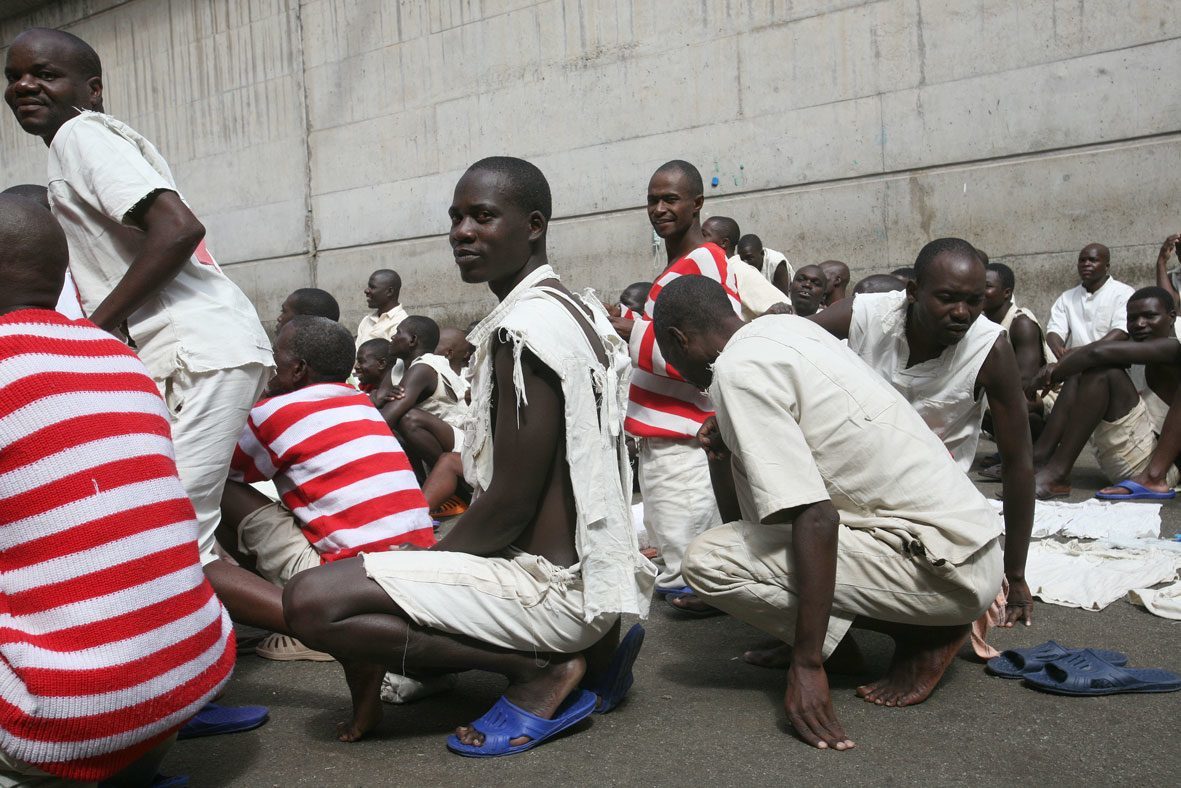
The Zimbabwe Prison and Correctional Services (ZPCS) has extended its begging bowl to donor agencies and relatives of convicts as thousands of inmates face serious food shortages, it has emerged.
By Wongai Zhangazha
Zimbabwe’s cash-strapped government is struggling to raise funds to feed prisoners. Although President Robert Mugabe this year freed over 2 000 prisoners on an amnesty, information gathered by The Standard shows that correctional officials are struggling to cater for the basic needs of inmates. The country’s 42 correctional facilities have a capacity to hold 17 000 prisoners.
According to a list of prisoners at Chikurubi Maximum Security Prison (main wing) gleaned by The Standard, relatives of inmates are required to bring a kilogramme of kapenta fish, three tinned beef or tinned fish, 2kg sugar, two loaves of bread, 1kg powdered milk, biscuits, shelled groundnuts, two 375ml bottles of peanut butter, one pack of maputi (roasted corn), five litres of Mazoe orange crush bought from the local tuck shop and bananas, oranges and five apples each.
“The above items are only meant for the main wing. Food items at the hospital and psychiatric wing will not be affected by the above,” reads the request paper signed by officer-in-charge Chikurubi Maximum Seurity Prison, Assistant Commissioner Ernest Pambayi.
One relative who visited an inmate last week, said she was shocked by the list of food items, which she said would be difficult for her to afford.
“I thought that inmates were fed at prisons, but the list shocked us, especially in these difficult economic times,” said the female visitor who preferred anonymity.
“That is like feeding a child who is at boarding school. It just goes to show that there is not enough food at the prisons when we are asked to bring sugar, salt and kapenta.”
- Chamisa under fire over US$120K donation
- Mavhunga puts DeMbare into Chibuku quarterfinals
- Pension funds bet on Cabora Bassa oilfields
- Councils defy govt fire tender directive
Keep Reading
However, ZPCS public relations officer Superintendent Priscilla Mthembo denied that prisons were facing serious food shortages.
“Right now we are not experiencing any food shortages because we recently received maize from government as part of the drought relief programme since we fall under the vulnerable group. We also have some maize from our farms. Food items like sugar, cooking oil and salt were also recently received from government. We also grow our own vegetables,” Mthembo said.
“We also get assistance from the International Committee of the Red Cross, so there are no food shortages at the moment. Food items can be requested by a prison officer to relatives in the event the inmate has a special condition.”
Treasury is currently operating on a tight budget, with the public sector wage bill accounting for almost 98% of revenue collection.
In March last year, over 900 prisoners at Chikurubi Maximum Security Prison rioted over poor food, resulting in the death of over 10 inmates.
Reports indicated that the inmates were being fed on porridge without sugar. They were also being served sadza and spinach for a combined lunch and supper, a diet which health experts say leads to malnutrition and eventually serious health complications.











